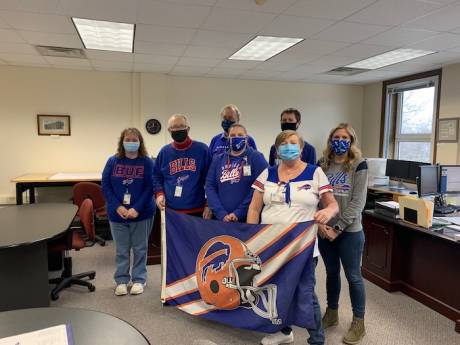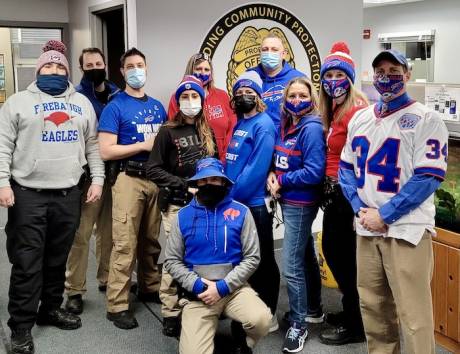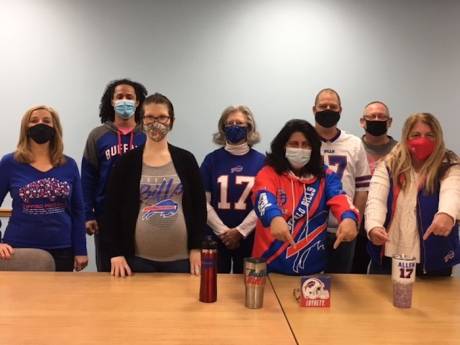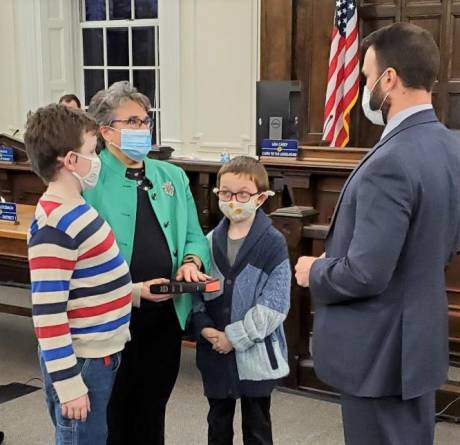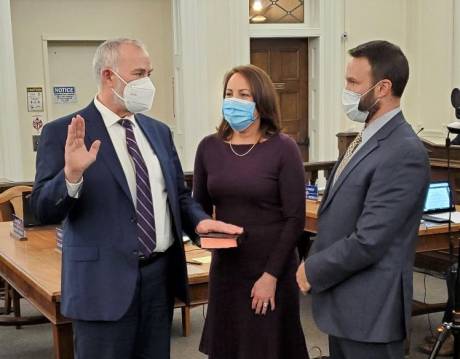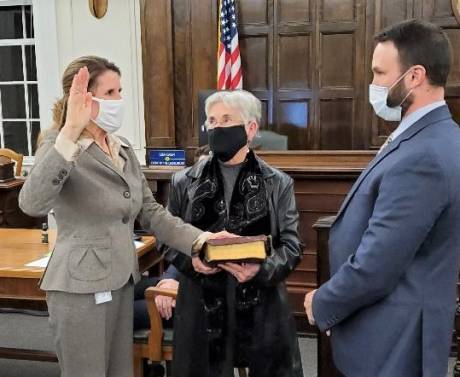Genesee's WROTB director slams state senator's attempt to restructure board of directors, place a cap on perks
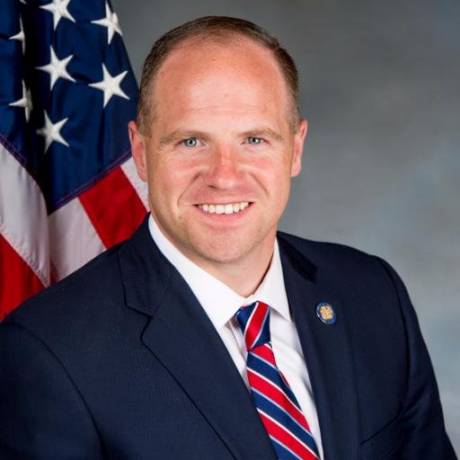
Speaking to the Genesee County Legislature’s Ways & Means Committee this afternoon, Richard Siebert, a WROTB director for 28 years, said the proposal by Kennedy (photo at right) would “basically demolish everything we’ve had at OTB.”
“It would eliminate the status that we’ve had since 1974 when our county joined and everybody else (other participating counties) joined,” he said. “The legislation would basically eliminate the directors as we know them … (and) would put perhaps Genesee as a director in with Livingston County, Chautauqua County, Catt (Cattaraugus) County, Orleans County, Seneca County; basically, eliminate all of us, and put just one director, perhaps appointed by the governor.”
Siebert said he wanted the legislature to be aware of Kennedy’s Senate bills, which were introduced last week in response to State Comptroller’s audits – released in September 2021 -- that faulted WROTB management for lack of oversight of perks distributed and for failure to receive prompt reimbursement for personal use of an official vehicle.
The audit by the Comptroller’s office took place over the course of a little more than two years, between September 2017 and December 2019.
According to Kennedy’s website, the three bills would result in the following:
- Revise the structure of the board based on population. As OTB profits are distributed by population, this bill would require that the membership of the board of directors be based on population.
- Cap the allowance of promotional items for certain members of the corporation. This legislation would make the gift rules governing OTB associates consistent with the Public Officers Law, Legislative Law, and Executive Law, where state employees may not receive a gift of any kind valued at an amount greater than $15.
- Prohibit OTB corporation vehicles from being used as take-home vehicles.
Regarding the current makeup of the WROTB, each of the 15 counties plus the City of Buffalo and City of Rochester that receive benefits from gaming and racing revenues are represented by a director.
“It basically is a power grab for the bigger counties,” Siebert said. “We’ve always had one county, one vote. Genesee, Orleans – we’ve always had the same vote as the City of Rochester.”
Contacted minutes ago, WROTB President Henry Wojtaszek said the board has directed him to “explore all of our options.”
“All I will say at this time is that we’re exploring all of our options, including litigation, relative to the proposed bills,” Wojtaszek said. “It’s pretty simple.”
The WROTB directors meet for their monthly public session at 10 a.m. Thursday at the Park Road facility’s corporate board room.
Siebert said he wants the Genesee County Legislature and other county legislatures to draft resolutions to “exercise our Home Rule” opposing Kennedy’s plan.
“We have to realize that under Home Rule, we started this but with the Senate, the governor and the Assembly all in one little room, anything can happen,” he said. “This is very serious and can have serious consequences to our county.”
Ways & Means Committee Chair Marianne Clattenburg agreed with Siebert’s assessment of the situation, reiterating that “it’s definitely a power grab.”
“We all know what it’s about. It’s about the money that’s been shared … pretty liberally with a lot of municipalities and we need to fight this as hard as we possibly can.”
Kennedy, in announcing the proposed legislation, said the Comptroller’s report “outlined mismanagement and dysfunction at the Western Regional OTB, and demonstrated a clear need for reforms at the corporation, which has been plagued with problems for years.”
“Through this legislation, we’re holding members accountable, revising outdated policy, and creating fairer representation on the OTB board moving forward. Taxpayers deserve better, and we intend to ensure they receive that.”
Comptroller Thomas P. DiNapoli apparently is in the Democratic senator's corner, judging by his comments.
“The Western Regional Off-Track Betting Corp. gave generous perks to board members, employees and others, ignoring state rules,” DiNapoli said. “My auditors found a troubling disregard for appropriate safeguards to hold people accountable and protect public resources. Senator Kennedy is proposing legislation that addresses this mismanagement and our major audit findings. I look forward to working with Senator Kennedy on these critical reforms and holding government accountable.”


